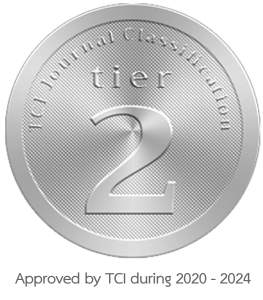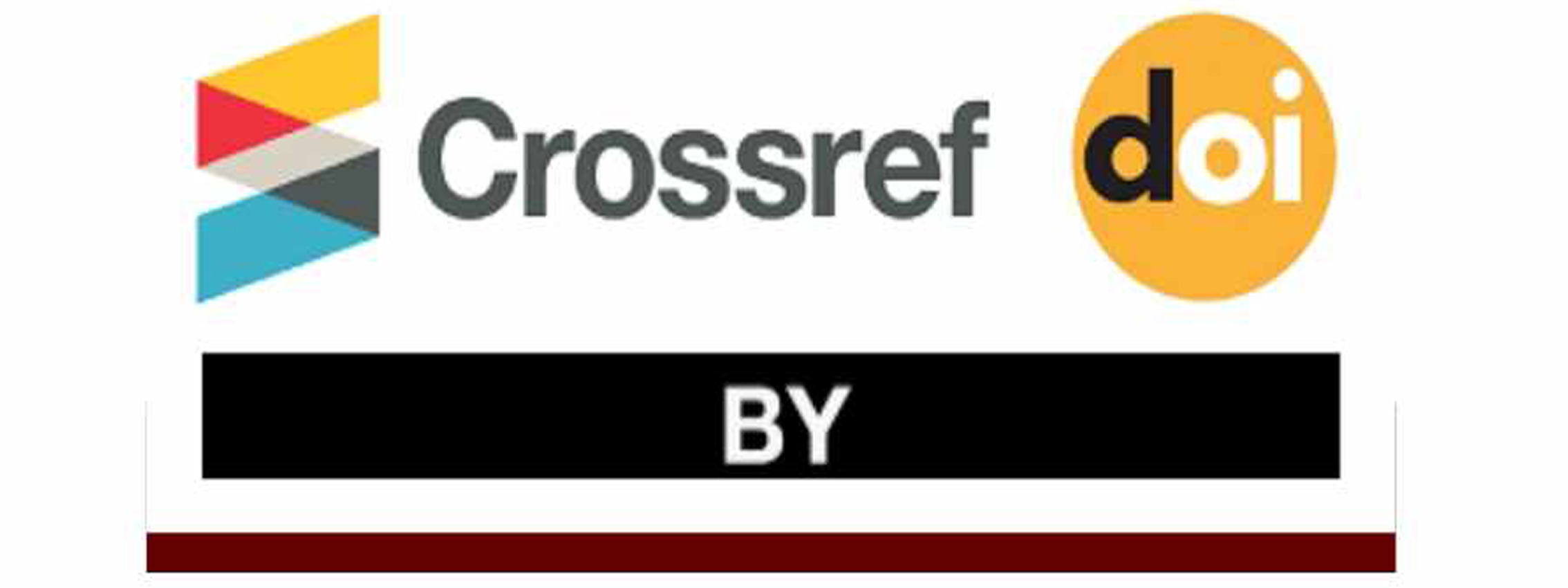Using digital flashcards to improve English word reading skills in Thai primary school learners
DOI:
https://doi.org/10.62819/jel.2024.346Keywords:
digital flashcard, Thai EFL primary learners, word reading skillsAbstract
Numerous studies have investigated the effectiveness of digital flashcards for teaching word reading. Digital flashcards, among various educational tools, have gained popularity for enhancing word reading skills. This study investigated the effect of digital flashcards on English word reading skills among Thai primary students. Moreover, the study explored their perceptions towards the implementation of digital flashcards for word reading development. The study involved nineteen students aged 11 to 12. The research tools included a pre-test and post-test assessment of word reading skills and a perception questionnaire. A semi-structured interview was also conducted to gather deeper insights into the participants’ perceptions of digital flashcards. A pre-test was administered before the implementation of an eight-week instructional period with digital flashcards, followed by a post-test. Next, a perception questionnaire and a semi-structured interview were conducted. The findings suggested that digital flashcards effectively enhanced word reading skills among Thai primary school students. The perception questionnaire revealed that the participants held highly positive views on using digital flashcards. Qualitative data further supported the advantages of digital flashcards in word reading skills, offering insights for educators and recommendations for future research.
References
Akhondi, M., Malayeri F.A. & Samad A.A. (2011). How to teach expository text structure to facilitate reading comprehension. The Reading Teacher, 64, 368-372.
Al-Kandari, Z. (2023). The Effect of Using Flashcards on Developing Dolch Sight Word Recognition Skills among Primary School Pupils in Kuwait. EKB Journal, 39(5), 1-22.
Alwi, N. Z., & Aulia, D. (2023). Digital Flash Card Media for Early Reading Learning in Elementary Schools. Jurnal Ilmiah Sekolah Dasar, 7(1), 8-17.
Astuti, S. & Chandra, N. (2023). Flashcard as Media in Teaching English: A Systematic Literature Review. Jurnal Sinestesia, 13(1), 395-409.
Baddeley, A. D. (1990). The development of the concept of working memory: Implications and contributions of neuropsychology. In G. Vallar & T. Shallice (Eds.), Neuropsychological impairments of short-term memory (pp. 50–73). Cambridge University Press.
Bhumibhong, C. (2018). A study on developing English word reading ability of lower secondary school students with reading difficulty through phonics method and augmented reality. Master of Education Thesis, Faculty of Education, Srinakharinwirot University.
Castles, A., Rastle, K. & Nation, K. (2018). Ending the reading wars: reading acquisition from novice to expert. Psychological Science in the Public Interest, 19(1), 5-51.
Chen, H. T. (1990). Theory-driven evaluations. Thousand Oaks, CA: Sage.
Colbran, S., Gilding, A., & Colbran, S. (2014). The role of digital flashcards in legal
education: theory and potential. European Journal of Law and Technology, 5(1), 1-15.
Creswell, J. W. (2014). Research design: Qualitative, quantitative, and mixed methods approaches (4th ed.). SAGE Publications.
Dujardin, E., Ecalle, J., Auphan, P., Bailloud, N. & Magnan, A. (2023). Vocabulary and reading comprehension: what are the links in 7- to10 year-old children?. Scandinavian Journal of Psychology, 64, 582-594.
Eichstaedt, M. (2023). Comparing the Efficacy of Print and Digital Flashcards for Vocabulary Acquisition in an Elementary Education Setting. [Doctoral thesis, University of St. Francis].
Eloranta, A. K., Närhi, V. M., Eklund, K. M., Ahonen, T. P., & Aro, T. I. (2019). Resolving reading disability—Childhood predictors and adult‐age outcomes. Dyslexia, 25(1), 20-37.
Fraher, C., Adelson, V. & Geva, E. (2014). Recognizing English language learners with reading disabilities: Minimizing bias, accurate identification, and timely intervention. Perspectives on Language and Literacy, 40(4), 11-17.
Gangl, M., Moll, K., Jones, M., Banfi, C., Schulte-Körne, G., & Landerl, K. (2018). Lexical reading in dysfluent readers of German. Scientific Studies of Reading, 22(1), 24–40.
Gough, P.B. & Tunmer, W.E. (1986). Decoding, reading, and reading disability. Remedial and Special Education, 7, 6–10.
Gultiano, S.O. (2022). Reading comprehension in the English subject among grade 4 students in Carmen Elementary School. International Journal Of Advance Research And Innovative Ideas In Education, 8(6), 375-390.
Hatiningsih, N., & Adriyati, P. (2018). Implementing flashcard to improve the early reading skill. Advances in Social Science, Education and Humanities Research (ASSEHR), 40, 291-294.
Hoover, W. A. & Gough, P. B. (1990). The simple view of reading. Reading and Writing, 2, 127–160.
Iqbal, B. (2016). Teaching high frequency words to poor readers using flashcards: its effects on novel word acquisition, skill transfer to in-text word reading, and passage reading competencies. Master of Educational Psychology Thesis, Massey University, Albany, New Zealand.
Ivankova, N. V., & Creswell, J. W. (2009). Mixed Methods. In J. Heigham & R. A. Croker (Eds.), Qualitative research in Applied Linguistics: A practical introduction. Palgrave Macmillan.
Kalyuga, S., Chandler, P., & Sweller, J. (2000). Incorporating learner experience into the design of multimedia instruction. Journal of Educational Psychology, 92(1), 126–136. https://doi.org/10.1037/0022-0663.92.1.126
Karademir, E., & Ulucinar, U. (2017). Examining the relationship between middle school students’ critical reading skills, science literacy skills and attitudes: A structural equation modeling. Journal of Education in Science, Environment and Health (JESEH), 3(1), 29-39.
Kaushik, D., & Lipton, Z. C. (2018). How much reading does reading comprehension require? A critical investigation of popular benchmarks. In E. Riloff, D. Chiang, J. Hockenmaier, & J. Tsujii (Eds), Proceedings of the 2018 Conference on Empirical Methods in Natural Language Processing (pp. 5010-5015). Association for Computational Linguistics.
Kusumawardhani, P. (2019) The Use of Flashcards for Teaching Writing to English Young Learners (EYL). UNINDIRA: Journal of English Language Teaching, 4(1), 35-52.
Loong, S. & Aziz, A. (2019). The effectiveness of synthetic phonics in developing reading fluency among year 2 intermediate pupils. International Journal of Innovative Research & Development, 8(12), 131-140.
Lotto, L., & De Groot, A. M. B. (1998). Effects of learning method and word type on
acquiring vocabulary in an unfamiliar language. Language Learning, 48(1), 31–69. https://doi.org/10.1111/1467-9922.00032
Lucas, C., Hood, P., & Coyle, D. (2021). Blossoming in English: Preschool Children’s Emergent Literacy Skills in English. Journal of Research in Childhood Education, 35(3), 477–502.
Mayer, R. E. (2002b). Multimedia learning. In The Psychology of learning and motivation/The psychology of learning and motivation (pp. 85–139). https://doi.org/10.1016/s0079-7421(02)80005-6
Montgomery, C. (2022). How to Improve Reading Comprehension: 8 Expert Tips. SAT/ ACT Prep Online Guides and Tips.
Perfetti, C.A. (1985). Reading ability. Oxford University Press.
Predani, T., Agung, G., & Tirtayani, A. (2022). Digital-Based Media Flashcards in Primary School English Learning, is it Effective? Jurnal Pendidikan Bahasa Inggris Undiksha, 10(2), 204-211.
Rochman, M. (2018). The importance of teaching reading: improving students’ reading comprehension in EFL context emphasized on reading fluency and accuracy. Journey Journal of English Language and Pedagogy, 1(1), 6-14.
Salikin, H., & Bin Tahir, S. Z. (2017). The Social Media-Based Approach in Teaching Writing at Jember University, Indonesia. International Journal of English Linguistics, 7(2), 73-86. https://doi.org/10.5539/ijel.v7n3p46
Short, D., Becker, H., Cloud, N., Hellman, A., Levine, L., & Cummins, J. (2018). The 6
principles for exemplary teaching of English learners. Danvers, MA: Anita Draper.
Sinurat, J. M. (2022). The Effectiveness of Using Flashcards in Teaching Simple Present Tense at the Eight Grade Students of SMP N 2 Simpang Empat Karo. [Sarjana's Thesis, Universitas HKBP Nommensen] Universitas HKBP Nommensen Repository. http://repository.uhn.ac.id/handle/123456789/7372.
Sorden, S. D. (2005b). A Cognitive approach to instructional design for Multimedia learning. Informing Science, 8, 263–279. https://doi.org/10.28945/498
Stahl, S. A., & Nagy, W. E. (2006). Teaching word meanings. Mahwah, NJ: Lawrence Erlbaum.
Tasawang, S. (2022). Effectiveness of synthetic phonics on simple word reading of second graders at a public primary school. In N. Wannakit & T. Roungtheera (Eds.), Proceedings of the 3rd LSCIC 2022 Language, Society and Culture International Conference (pp. 75-88). Faculty of Humanities and Social Sciences, Mahasarakham University, Thailand.
Tonne, I. & Pihl, J. (2013). The second-language pupil, reading tests and literature-based teaching. Nordic Journal of Second Language Acquisition, 8(1), 91-109.
Tonzar, C., Lotto, L., & Job, R. (2009). L2 Vocabulary acquisition in Children: Effects of
learning method and cognate status. Language Learning, 59(3), 623–646. https://doi.org/10.1111/j.1467-9922.2009.00519.x
Ulumm, M.S., Yafie, E., Wahyuningtyas, D.P., & Rofiki, I. (2021). Improving linguistic intelligence through graphic introduction with flashcard media for early childhood. International Journal of Computational Intelligence in Control, 13(2), 79-87.
Wang, C. (2019). Can Raising Phonological Awareness Enhance the English Reading Comprehension of Taiwanese Primary School-aged Children?. Asian EFL Journal, 23(5), 4-27.
Warti, F. (2021). Teaching sight words using flashcards in developing reading fluency of young learners. English Language Studies and Applied Linguistics Journal, 1(2), 34-43.
Weber, M. (1978). Economy and Society: An Outline of Interpretive Sociology. Berkeley, CA: University of California Press.
Wen, J. M., Do, H. D., Liu, E. Z. F., Lin, C. H., & Huang, S. K. (2020). Educational board game and flashcard: Which one is better for learners at beginner level of Chinese language?. International Journal of Serious Games, 7(4), 89–104.
Wichayut, J. (2019). THE effects of phonics instruction: letters and sounds on decoding and blending skills of Thai grade 3 students. Master of Arts in English Language Teaching Thesis, Language Institute, Thammasat University.
Yowaboot, C., & Sukying, A. (2022). Using digital flashcards to enhance Thai EFL primary school students’ vocabulary knowledge. Canadian Center of Science and education, 15(7), 61-74. http://doi.org/10.5539/elt.v15n7p61
Zhang, Z., Yang, J., & Zhao, H. (2021). Retrospective reader for machine reading comprehension. In Proceedings of the AAAI Conference on Artificial Intelligence (Vol. 35, No. 16, pp. 14506-14514).


















